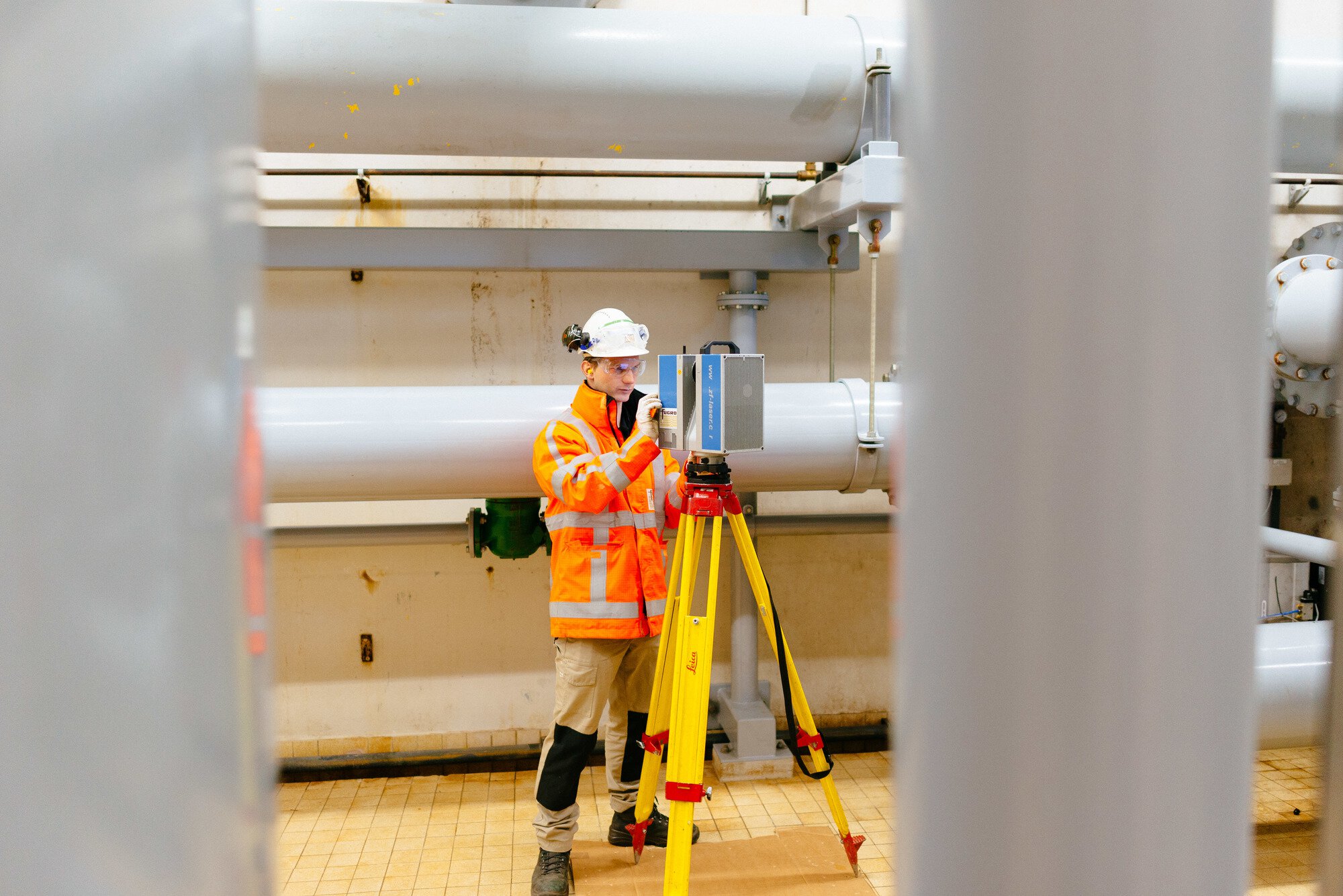Case study
Gorgon Project - Dimensional Control
Australia

Client
Chevron Australia-operated Gorgon Project
We provided dimensional control surveys and associated site survey services on Chevron Australia’s Gorgon Project. This enabled the safe and accurate Single Weld Hook-up (SWHU) of the project’s modules and preassembled racks (PARs).
Life cycle
Planning, feasibility, conceptual design
Design
Construction
Operations and maintenance
Decommissioning
Show full process
The Gorgon Project is a joint venture between the Australian subsidiaries of Chevron (47.3 percent), ExxonMobil (25 percent), Shell (25 percent), Osaka Gas (1.25 percent), Tokyo Gas (1 percent) and JERA (0.417 percent). Fugro was commissioned to provide land, marine, engineering and dimensional control survey services during the construction of the project.
Some Facts
The Gorgon Project is one of the world’s largest natural gas projects and the largest single resource development in Australia’s history.
Located on Barrow Island, 60 km off the Pilbara coast in Western Australia
Barrow Island classified as a Class A nature reserve
3 x 5.2 MTPA LNG trains
2.1 km materials offloading facility
2.1 km long LNG jetty
Modularised construction
SWHU connection between modules and pre-assembled racks (PARs)
Modules as heavy as 6,300 tonnes
Modules and PARs built in South Korea, China and Indonesia
We established permanent site teams in three of the overseas yards, as well as on-site. The number of surveyors peaked at 30 personnel across all four sites, together with a project support team based at our Perth office.
Scope of Work
The main focus of the overseas yards was ensuring that each module interface - both piping and structural - was built to the tight tolerances required for Single Weld Hook-up (SWHU).
The team on Barrow Island was tasked with ensuring foundations were built in the correct location and that all modules and PARs were installed in the optimum position, as determined by our yard surveyors, to match the adjoining structures.
Additionally, our Barrow Island team provided audit surveys for earthworks, environmental monitoring surveys, tenure surveys and many other miscellaneous surveys, as directed by the project team.
What is SWHU?
SWHU is a method of connecting pipes between modules with a single closure weld. Traditionally, modules are designed, fabricated and installed with a gap left between the adjoining pipes. A ‘hook-up spool’ is then fabricated and installed after module installation.
Both traditional and SWHU approaches have pros and cons, mainly relating to time and cost. It is generally accepted that a SWHU approach requires greater dimensional control processes to ensure that pipes are accurately aligned when modules and PARs are installed.

Typical SWHU connection between adjoining pipes from two modules built in two different countries

Used technology
3D laser scanning

3D laser scanning
By using cutting-edge survey equipment and software to examine, map, and monitor the built and natural environment. From advanced technical survey solutions to more conventional survey methods, our capabilities include dimensional control, laser scanning, and mobile mapping.
Rising to the Challenge
Projects of this size and nature always have their challenges. In the execution of this project, we experienced:
Very tight SWHU tolerances between pipes
Multiple countries involved
Variation in temperatures during fabrication
Different coefficients of expansion in the piping materials
Thanks to our experience working in overseas fabrication yards over the past two decades, we were able to overcome these challenges.
Solutions
From the very beginning of the project, we developed specific solutions and processes to assist our client in executing the scope of work. Some of these solutions were:
A ‘one team’ approach across all sites, ensuring consistency in how surveys were executed, processed, reported and communicated
Customised software for processing, analysis and electronic checking of data to minimise the risk of any errors
Establishing a single source of data depository to ensure that only the most recent version of data was being used
Systems and processes developed to assist yard surveyors with sharing of data and resources


1 / 2
Fugro surveyors checking pipe locations
Fugro's Commitment to Safety
Our involvement on this project was very hands-on, with teams working on site every day. As this exposed them to the potential hazards associated with the construction industry, particularly in overseas yards, we were happy to adopt Chevron Australia’s Incident and Injury Free (IIF) culture from day one. This was disseminated throughout the yards and on site, in tandem with our own Fugro safety culture and values. The success of our commitment was demonstrated by achieving 300,000 hours with zero Lost Time Injuries (LTIs).
"Ask Fugro"
Fugro is very proud to have been involved with this project. Our reputation in the provision of dimensional control surveying services to the oil and gas industry goes from strength to strength, and we are now providing similar services on the Ichthys LNG Project for Inpex in Australia, and the Yamal LNG project for Yamgaz in Russia.

What we do at Fugro